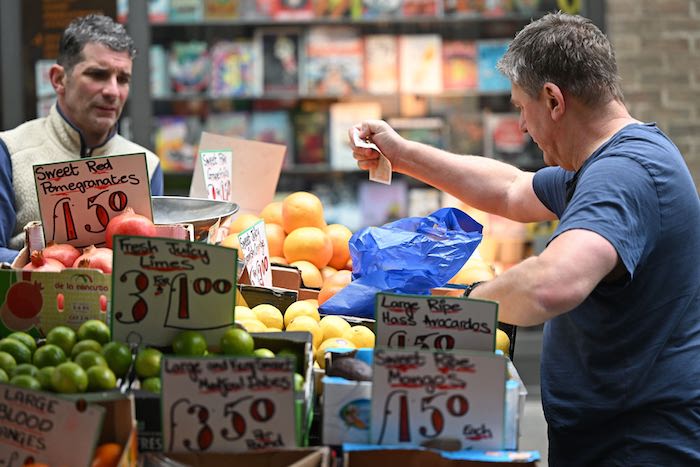Inflation in the United Kingdom hit a new 40-year high in July due to soaring food costs, according to official data released on Wednesday, further exacerbating a cost-of-living crisis as the country braces for the possibility of a recession.
After hitting a 40-year high of 9.4 percent in June, the Office of National Statistics reported that July’s increase in the Consumer Price Index (CPI) to 10.1% was the highest ever recorded.
Inflation in the United Kingdom is expected to hit 13.1 percent this year, the highest level since 1980, the Bank of England warned earlier this month.
With official data showing Britain’s economy shrank in the second quarter last week, the report predicted the country would enter a recession that would last until late 2023.
After the latest inflation data was released, Finance Minister Nadhim Zahawi said, “I understand that times are tough, and people are worried about increases in prices that countries around the world are facing.”
A strong, independent monetary policy, responsible tax and spending decisions, and reforms to boost productivity and growth are all part of Zahawi’s plan to “get inflation under control,” he said.
He defended the £37 billion aid package by saying the government is “helping where we can.”
Despite wage values falling at an unprecedented rate, Britain is experiencing a cost-of-living crisis.
Boris Johnson is stepping down as prime minister next month, and fellow Conservatives Liz Truss and Rishi Sunak are vying to take his place. They will inherit a worsening economy.
At its most recent policy meeting, the central bank increased its key rate by 0.50 percentage points, to 1.75 percent, the largest increase since 1995.
The move by the BoE is in line with the aggressive monetary policy taken by the US Federal Reserve and the European Central Bank last month, as the world races to cool red-hot inflation fueled by Russia’s invasion of Ukraine.
According to the UK’s statistical agency, food prices contributed significantly to CPI “largest movements” last month.
First, the price of milk, cheese, and eggs, and then that of bread and cereals, all contributed to the overall increase in food costs.
According to the chief economist at ONS, the price hikes were reflected in higher takeout food prices.
In addition, “price increases in other staple items, such as pet food, toilet rolls, toothbrushes, and deodorants, also pushed up inflation in July,” he said.
Higher demand led to price hikes across the board, including vacation packages and airline tickets, according to Fitzner.
As a result, the price of both inputs and finished products produced by factories rose.
